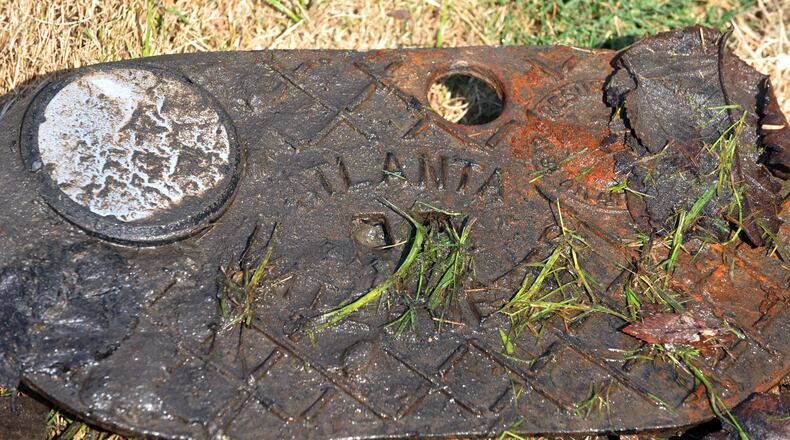The city of Atlanta says it’s making progress in its efforts to collect on outstanding water bills, but at least 13 percent of customers in single-family residences are still delinquent on their payments at any given time, including some city council members, a mayoral candidate and Mayor Kasim Reed’s brother.
And no one is getting cut off.
The Department of Watershed Management is focusing collections on big accounts such as apartment buildings or commercial businesses, a city spokeswoman said. The department has collected about $11.9 million from delinquent commercial accounts, including $1.3 million in the last seven months, and more than $500,000 from apartments buildings and other multi-family facilities.
The water department is concentrating on commercial and multi-family buildings because they offer the greatest opportunity for revenue recovery, a city spokeswoman said.
Single-family homes will continue to get water services as long as they make at least a partial payment, she said.
A Channel 2 Action News investigation found that several council members — Ivory Lee Young, Cleta Winslow and Keisha Lance Bottoms, who also is running for mayor — have carried balances of as much $1,065, $2,382 and $1,300, respectively.
Winslow said in a statement, “I am current with my water bill accounts. As of March 23, 2017, I had a zero balance. I too feel the impact of the higher water rates, which are necessary, and it can be difficult to predict the next month’s bill.”
Tracy Reed, the brother of Mayor Reed, also owed almost $9,000 on a rental property he and his wife own in southwest Atlanta, according to Department of Watershed records.
In a statement, Tracy Reed said he was unaware that the water bills had not been paid. The house had been rented to a tenant who apparently had not paid the bills. He said neither he nor his wife was informed of the outstanding bill at the property.
“While our tenant is legally responsible for the bill, we have decided to go the extra mile and pay the balance, pending the resolution of some odd billing issues that appear to be errors made by the water department,” said Tracy Reed, who paid $1,000 on the outstanding balance in late April.
An average bill — based on usage of 8,000 gallons — costs an Atlanta resident $74.32, according to a 2015 analysis by the DeKalb County Department of Watershed Management, which also is struggling with billing issues. That same usage would cost $23.20 in Fulton County; $28.54 in DeKalb County; $36.40 in Cobb County; $48.73 in Gwinnett County; and $53.21 in Henry County.
In March, the city tried to gently nudge customers to pay outstanding balances. It offered an amnesty program that let them catch up on overdue bills without facing late fees. Many of the customers who owed $500 or more paid at least 20 percent of their outstanding bills and agreed to a payment plan for the balance, according to the department.
Harvey Newman, professor emeritus of the Andrew Young School of Policy Studies at Georgia State University, said Atlanta’s collection woes are a legacy of the consent decree former Mayor Bill Campbell signed in 1998 to address a federal lawsuit over water quality violations.
Campbell’s successor, Shirley Franklin, dedicated more than $3 billion to fix the city’s sewer systems, including raising Atlanta’s sales tax by a penny to pay some of the expense.
“Watershed management has been troubled over the last 15 to 16 years because of issues that were necessary to address the decree, including higher costs,” he said.
Tom Smith, an economist at Emory University’s Goizueta School of Business, said the city is in a no-win situation. Allowing customers to pay what they can creates a backlog of unpaid bills. But cutting off customers for not paying in full hurts those who truly need options because of the high cost.
“Anytime a city cuts off people who can’t afford to pay, it always ends up looking terrible for the city,” he said. “The city is trying to run like a business, but you have a population that can’t afford basic human necessities.”
About the Author
Keep Reading
The Latest
Featured



